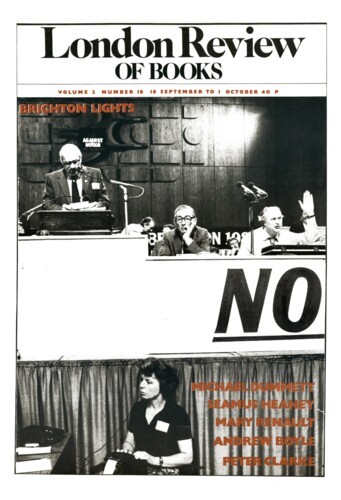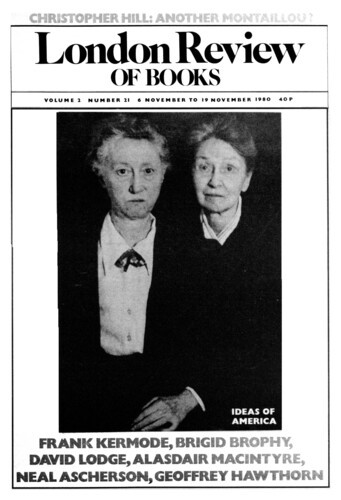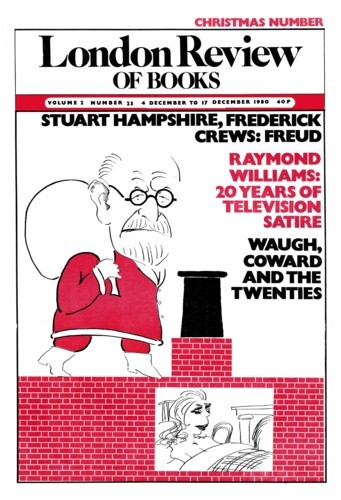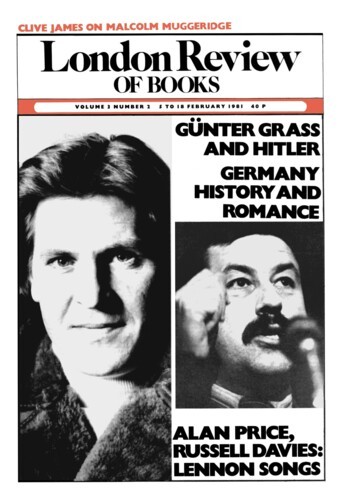Writing to rule
Claude Rawson, 18 September 1980
Was there such a thing as ‘Neo-Classicism’, outside the special sense of the term which art historians apply to a later period than the one over which students of literature lose so much of their composure? It seems to have existed sufficiently strongly in French studies to have produced a body of revisionist denials. The term ‘Neo-Classic’ has largely dropped out of the corridors of Englitbiz, usually to be replaced by ‘Augustan’, though one of the most loudly ballyhooed non-events in recent English studies has been an attempt to dislodge ‘Augustan’ too, on the grounds that some 18th-century authors took a dim view of Augustus Caesar. This, as someone remarked, is a bit like dropping the word ‘candidate’ because such persons no longer wear a white toga.




